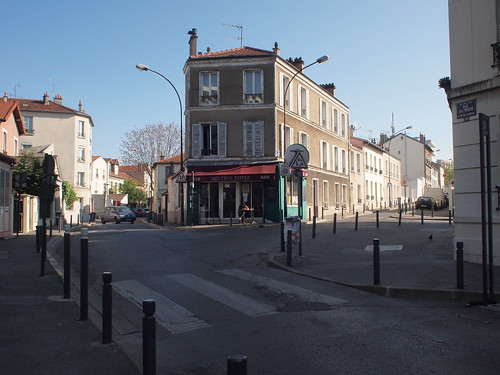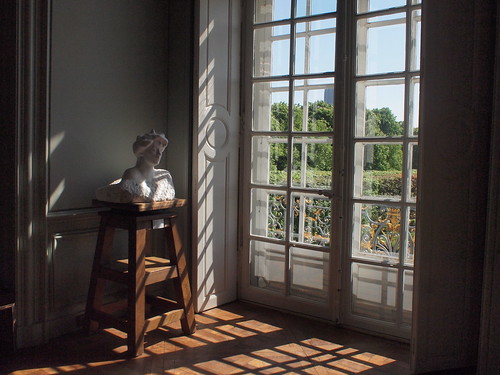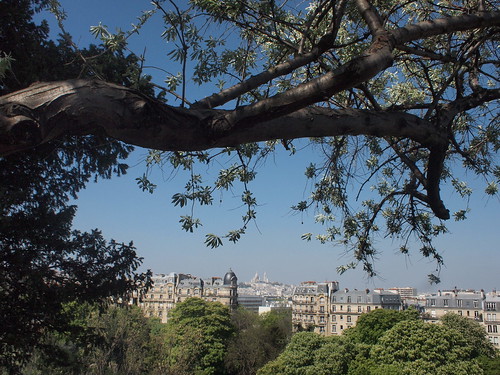
Paris was next on my whistle-stop tour, and I threw it in at least partly because I overdid it on Hemingway this fall. Well, not just Hemingway; there's also Rilke, who wrote: "I am in Paris. People who hear this are glad; most of them envy me. They're right. It is a great city, great and filled with strange temptations." While here, I visited the Musée Rodin and learned that Rilke and Rodin were friends, and wondered, as I ambled past shops and brasseries, who of these writers and artists had been here, or here, or here. But I also wondered about our ideas of Paris, the way the city is structured in our minds. I hadn't entirely wanted to come here. I didn't need to see the Eiffel Tower (though now I have), and something about this city's reputation--pretentious, romantic--never quite captured me. Except then--reading about the Lost Generation, reading Rilke's 'The Notebooks of Malte Laurids Brigge'--it did. So I added Paris to the itinerary.

I rented a shoebox apartment for the handful of nights I was in the city, on the fourth floor of a canalside building on the north side of town, close to the Parc des Buttes Chaumont. To reach most of the conventional tourist sites I had to catch the metro or trek several miles, but the neighborhood was lively and I could get a baguette and an almond croissant from the bakery on the corner for just over two Euros, which is a privilege that shouldn't be discounted. The New York Times recently ran an article called '
My European Ritual,' which asked the residents of various European cities to describe their rituals. For the few days I was there, my Paris ritual was as simple as this: going down four flights of spiral stairs, walking to the corner, buying a baguette and an almond croissant, eating the croissant for breakfast while I drank tea and made the baguette into sandwiches. It's the sort of touchstone that makes away feel a little bit like home. And then I would walk out into the city, which was awash with sun, which was very old and very large and had plenty of stories to tell. I didn't have time to listen to all of them, but I heard a few--most notably in the small, idiosyncratic,
Musée National Gustave-Moreau--and that was enough to convince me: Paris is a great city, and so much more than I had (naively, I think) anticipated.







No comments:
Post a Comment